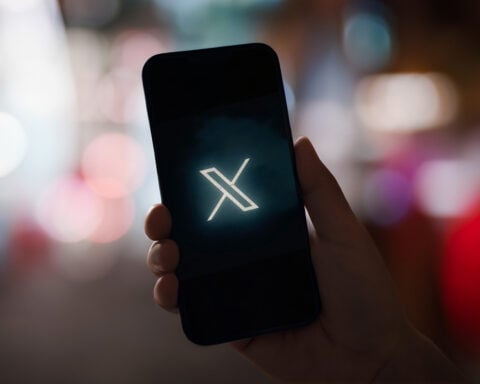In a recent and disconcerting development, explicit AI-generated images featuring global sensation Taylor Swift have become a viral sensation across various social media platforms. This incident has ignited serious debates about the concerning capabilities of mainstream artificial intelligence, shedding light on its potential for harm. It underscores how easily AI can generate shockingly realistic and harmful images, raising alarms among both tech experts and the general public.
These fabricated images of Taylor Swift, initially circulated on the social media platform formerly known as Twitter and now referred to as X, depicted the singer in compromising positions. Shockingly, these images amassed tens of millions of views before being removed from various social platforms, leaving an indelible digital footprint.
Although mainstream social media platforms have acted swiftly to remove the images, the vast and decentralized nature of the internet ensures that they will likely persist on less regulated channels, continuing to distress the artist and her dedicated fanbase.
Taylor Swift’s official spokesperson has not issued a statement regarding the incident, and X, like many other major social media platforms, maintains policies explicitly prohibiting the dissemination of synthetic, manipulated, or out-of-context media that could deceive or harm users. However, despite calls for clarification from CNN, the company has yet to respond to inquiries regarding this specific incident.
This unsettling occurrence arises at a pivotal moment, with the United States on the cusp of a presidential election year, heightening concerns about the potential misuse of AI-generated images and videos in disinformation campaigns. Experts in digital investigations have sounded the alarm about the increasing exploitation of generative AI tools to create harmful content targeting public figures, with these malicious creations spreading rapidly across social media platforms.
Ben Decker, the founder of Memetica, a digital investigations agency, highlights the inadequacy of social media companies’ strategies to effectively monitor such content. For instance, X has significantly reduced its content moderation team, relying heavily on automated systems and user reporting, and is currently facing scrutiny in the European Union for its content moderation practices.
Similarly, Meta, the parent company of Facebook, has made cuts to its teams responsible for combating disinformation and harassment campaigns on its platforms. These actions raise significant concerns, especially as the 2024 elections approach in the U.S. and worldwide, where disinformation campaigns can wield substantial influence.
The origins of the AI-generated Taylor Swift images remain murky, although some were discovered on platforms like Instagram and Reddit. However, X appears to be the primary platform where these images gained widespread notoriety.
This incident coincides with the growing popularity of AI generation tools such as ChatGPT and Dall-E, along with the broader proliferation of unregulated AI models available on open-source platforms. Decker contends that this situation underscores the fragmentation in content moderation and platform governance. Without all stakeholders, including AI companies, social media platforms, regulators, and civil society, aligning their efforts, the proliferation of such content is likely to persist.
Despite the distressing nature of this event, it may serve as a catalyst for addressing the mounting concerns surrounding AI-generated imagery. Swift’s devoted fanbase, known as “Swifties,” expressed their outrage on social media, thrusting the issue into the spotlight. Just as previous incidents involving Swift led to legislative efforts, this incident might galvanize action from legislators and tech companies alike.
The technology responsible for creating these images has also been misused for sharing explicit content without consent, which is currently illegal in nine U.S. states. This heightened awareness underscores the urgent need for comprehensive measures to address the potential negative consequences of AI-generated content.







